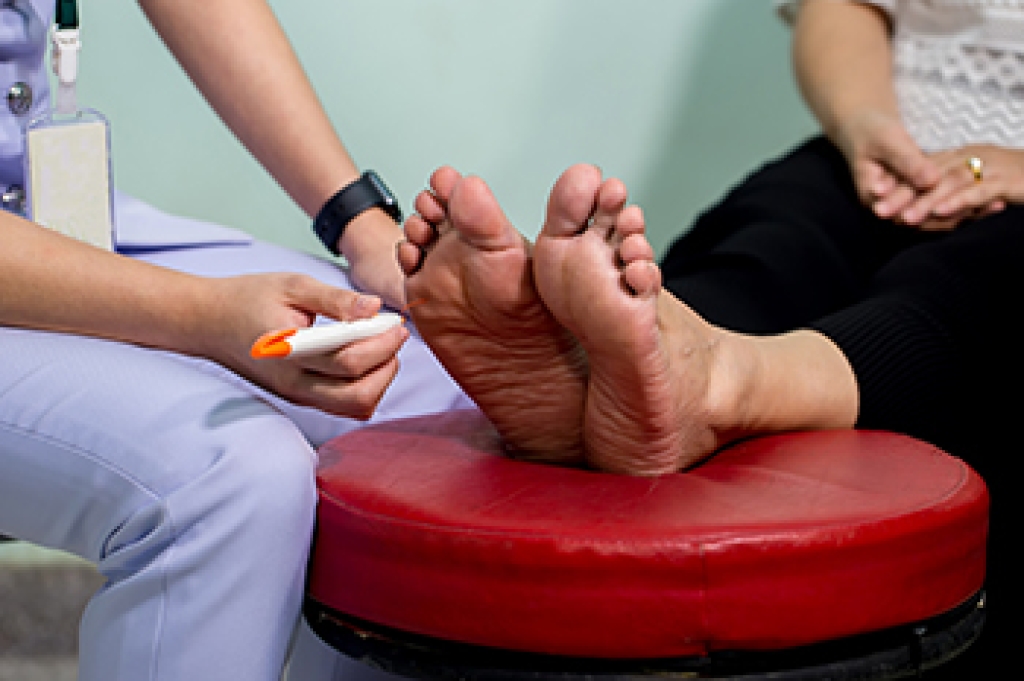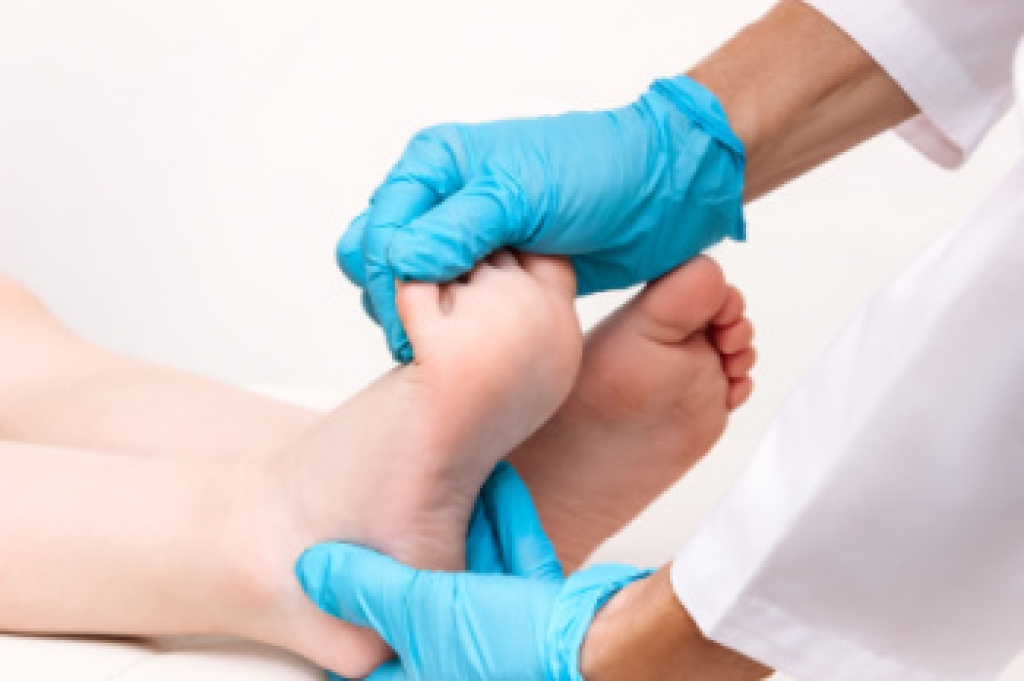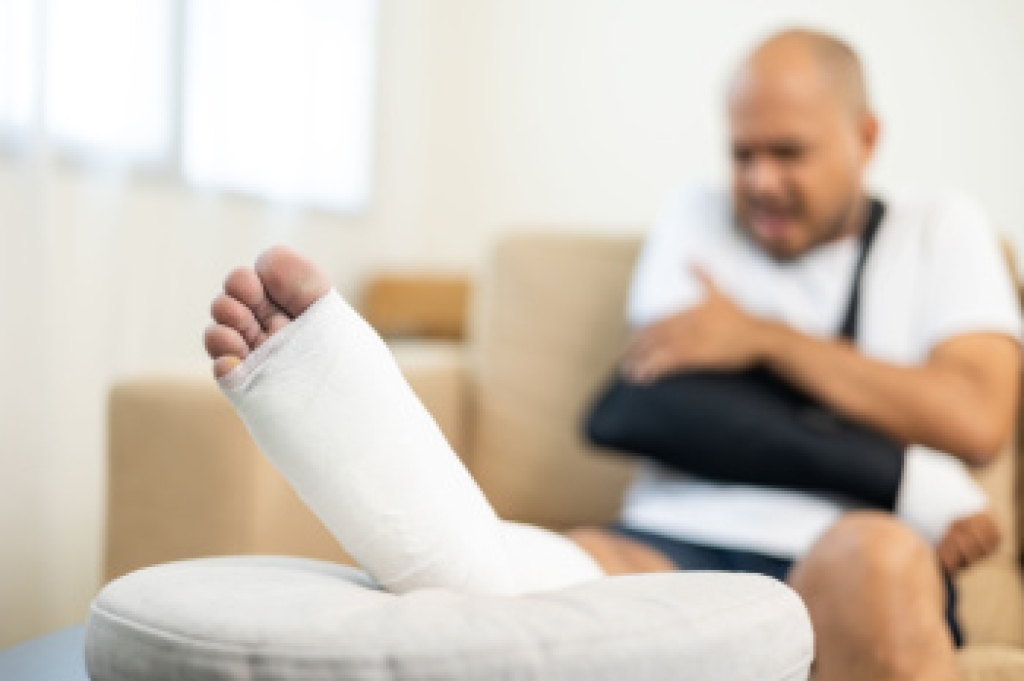
Peripheral neuropathy caused by diabetes affects the nerves in the feet and can lead to a variety of uncomfortable or extremely painful sensations. People with diabetic peripheral neuropathy may experience numbness, tingling, or a burning feeling in their feet. In some cases, they may notice sharp, shooting pains that occur suddenly. These symptoms can make walking difficult and increase the risk of balance issues or falls. Nerve damage can also make it hard to detect injuries, leading to foot sores or blisters that go unnoticed. Without proper sensation, even minor injuries can become serious if left untreated, leading to infection or gangrene. A podiatrist plays an important role in managing peripheral neuropathy by diagnosing the condition, offering treatment options to alleviate pain, and helping prevent further complications. If you have foot pain caused by neuropathy, it is suggested that you schedule an appointment with a podiatrist for a diagnosis and treatment.
Neuropathy
Neuropathy can be a potentially serious condition, especially if it is left undiagnosed. If you have any concerns that you may be experiencing nerve loss in your feet, consult with Kent DiNucci, DPM from Ankle and Foot Clinic . Our doctor will assess your condition and provide you with quality foot and ankle treatment for neuropathy.
What Is Neuropathy?
Neuropathy is a condition that leads to damage to the nerves in the body. Peripheral neuropathy, or neuropathy that affects your peripheral nervous system, usually occurs in the feet. Neuropathy can be triggered by a number of different causes. Such causes include diabetes, infections, cancers, disorders, and toxic substances.
Symptoms of Neuropathy Include:
- Numbness
- Sensation loss
- Prickling and tingling sensations
- Throbbing, freezing, burning pains
- Muscle weakness
Those with diabetes are at serious risk due to being unable to feel an ulcer on their feet. Diabetics usually also suffer from poor blood circulation. This can lead to the wound not healing, infections occurring, and the limb may have to be amputated.
Treatment
To treat neuropathy in the foot, podiatrists will first diagnose the cause of the neuropathy. Figuring out the underlying cause of the neuropathy will allow the podiatrist to prescribe the best treatment, whether it be caused by diabetes, toxic substance exposure, infection, etc. If the nerve has not died, then it’s possible that sensation may be able to return to the foot.
Pain medication may be issued for pain. Electrical nerve stimulation can be used to stimulate nerves. If the neuropathy is caused from pressure on the nerves, then surgery may be necessary.
If you have any questions, please feel free to contact our office located in Omaha, NE . We offer the newest diagnostic and treatment technologies for all your foot care needs.




